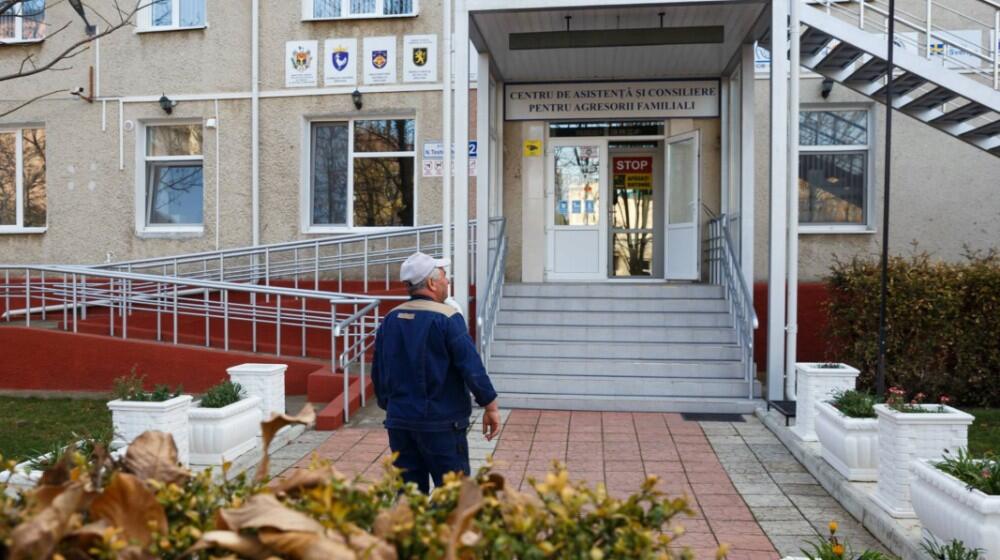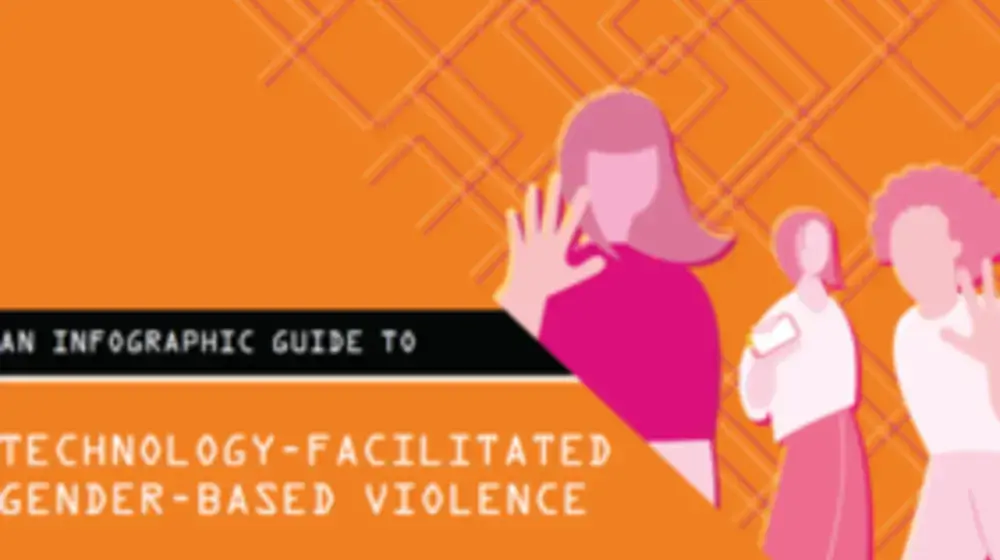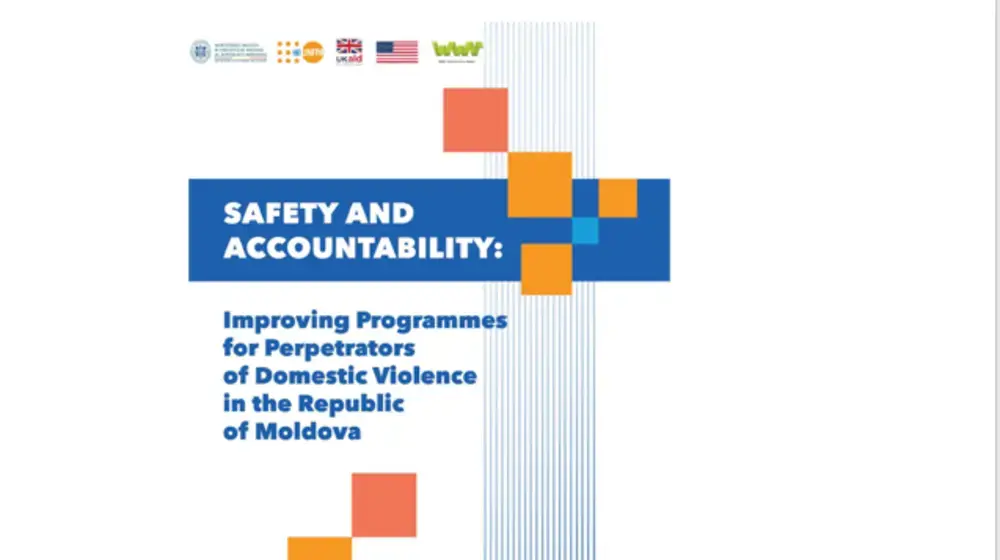After a second time being forced by the court to attend a counselling program for domestic perpetrators, Vitalie realised that there is no place for violence in his family. And because of his stereotypical beliefs about the role of women and men in a family, he had a violent behaviour towards his wife with whom once started in love and respect.
‘I always tried to justify my violent behaviour. After a number of counselling sessions I was able to put myself in my wife's shoes and it dawned on me how much pain she had suffered. I realised that what I'm doing is wrong and that I won't go down these paths anymore. A family needs peace and communication,’ Vitalie says five years after he realised that there is no place for violence in a family.
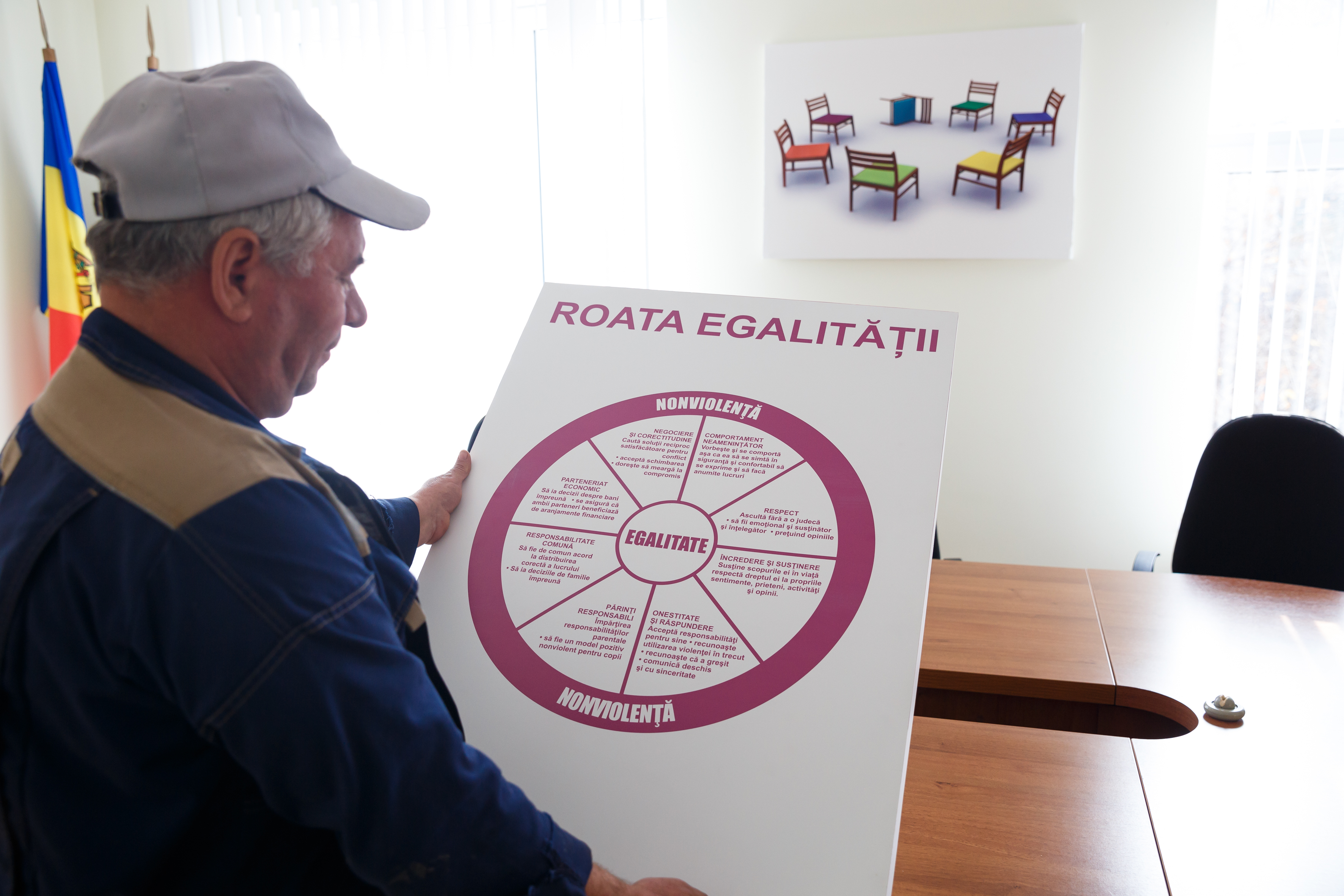
Vitalie grew up in a family where dad beating mum wasn't something unusual. He often saw emotional and physical abuse in the family. That's why when his son asked him why he was being violent with his mother, Vitalie recalled himself as a 6th grader asking his father the same question.
‘I felt that I was doing what my father did, and I realised how my children feel. I saw myself as if in a mirror and felt ashamed. I realised I wasn't doing the right thing,’ Vitalie says.
The realisation that violence has no place in a family came after years of suffering. Ranging from abusive words, to punches and hair pulling – there's been everything in Vitalie's family. Until one day his wife went to the police and Vitalie was banned from going near his family.
‘We met in 1985. The night I met her, I walked her home. Never could I have imagined that in 20 years I would be restricted from going near the house. It happened after I hit her. I came home from a party with co-workers. We argued, I got angry and hit her,’ Vitalie recalls.
In addition to being banned from going near his family, Vitalie was ordered by the court to attend counselling for domestic perpetrators.
‘At first I didn't want to attend. I resisted as much as I could. I imagined my acquaintances would see me and ask me what I was doing here. But the program counsellors explained to me that otherwise they wouldn't allow me to return home and I decided to come. At the first lesson I was ashamed. I thought that I’m too good to be here. But I met five other men in the group, each with his own story. We listened to each other and agreed that respect in a family should be above everything and that being a man doesn't mean you are God,’ Vitalie recalls.
He says that at the end of the three-month program he realised that there is no place for violence in a family. However, he says, it wasn't enough because he failed to change his beliefs about his role in the family. As a result, a few months later he hit his wife again.
The consequences were the same as when he first hit his wife – a complaint to the police, a ban from going near the family and another four months in a counselling program for domestic perpetrators.
‘The counselling for domestic perpetrators is an educational one and is based on the man becoming aware of his actions. In the first three months of the program, Vitalie managed to understand certain things, but he didn't process his stereotypical beliefs enough. He was still of the belief that the man is the one in charge in a family and if he relinquished control then he would become inferior to his wife. His second time in the program, he was still exhibiting resistance towards the teaching material. But along the way, by applying several techniques for working with domestic perpetrators such as listening, communicating with the partner, anger management, he became aware that he is responsible for the actions he takes,’ explained Andrei Odagiu, lawyer at the Assistance and Counselling Center for Domestic Perpetrators from Drochia.
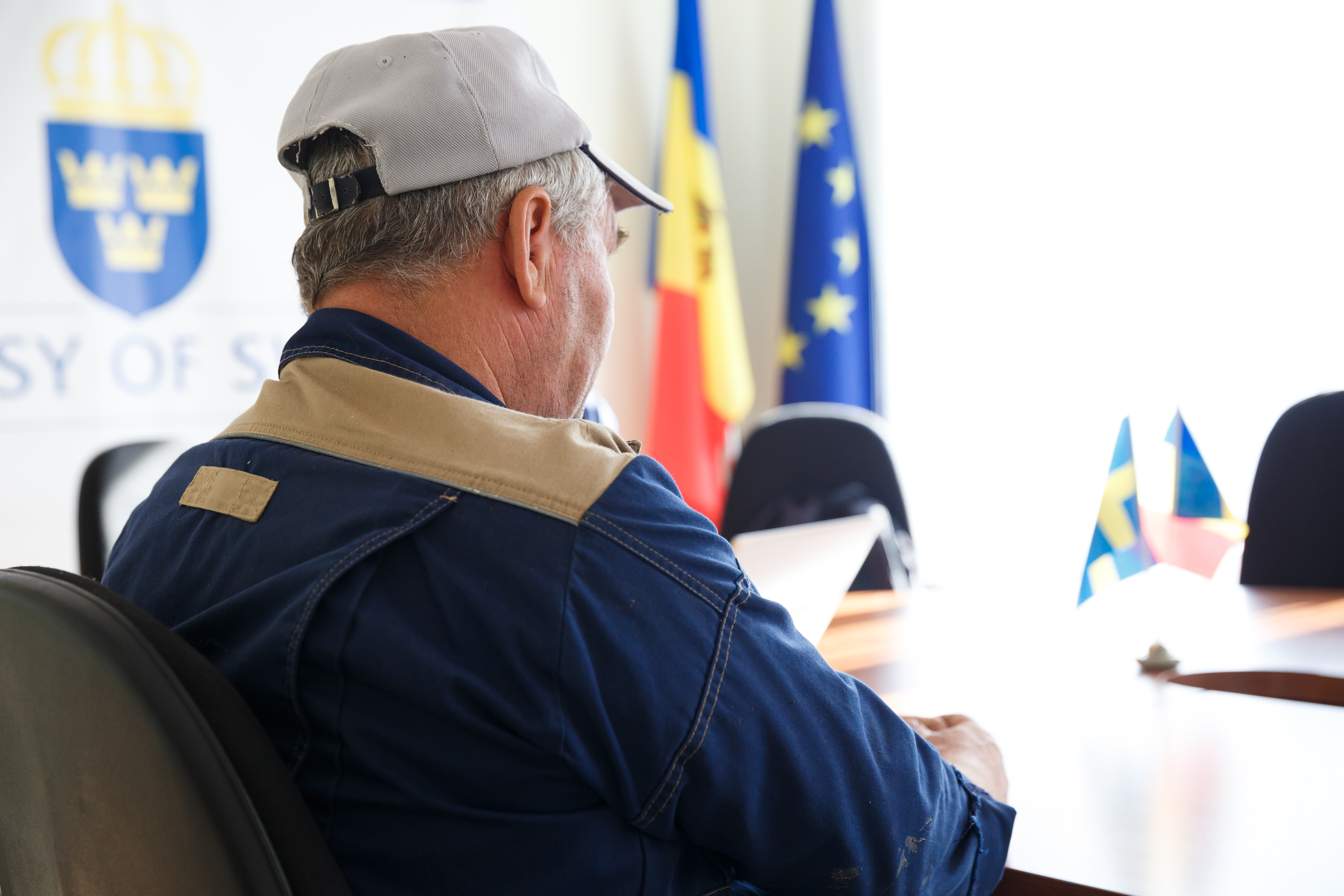
For 6 out of 10 women in Moldova, home is not a safe place. The number of cases of domestic violence, reported and registered by the authorities, is increasing continuously. Working with perpetrators is one of the main building blocks in the prevention of and response to domestic violence. According to the data of the Center for Domestic Perpetrators from Drochia, 8 out of 10 men who attended the counselling program for family perpetrators stopped violence in their families.
‘In the counselling program we work on the person's beliefs, the deep-rooted stereotypes that affect the relationship between man and woman in a family. We talk to men about all forms of violence, not just physical violence. And if the male perpetrator manages to become aware of the effects of his violent behaviour and takes responsibility, then the circle of violence comes to an end,’ says Andrei Odagiu, lawyer at the Assistance and Counselling Center for Domestic Perpetrators from Drochia.
Once they grew up, Vitalie's children started their own families and left home. Vitalie stayed with his wife. Vitalie stayed with his wife. He confesses that every day he makes every effort to ensure that his partner is not reminded of the days when he was violent.
‘A woman should not be afraid of a man. They must respect each other. It's important to be able to see yourself objectively. And think carefully before you do anything. Let's discuss this,’ Vitalie advises.
__________________________________________
Working with perpetrators is high on UNFPA's agenda in the fight against violence. Together with the Assistance and Counselling Center for Domestic Perpetrators from Drochia, we are running a mentoring program for multidisciplinary teams from Strășeni and Fălești so that they can respond jointly to cases of domestic violence.
In the program, police officers, doctors, educators and social service providers from Strășeni and Fălești work side by side with professionals from the Assistance and Counseling Center for Domestic Perpetrators from Drochia and learn how to apply the procedures for referring domestic perpetrators to specialised services.
This effort is a part of the regional program ‘EU 4 Gender Equality:Together against gender stereotypes and gender-based violence’, funded by the European Union, UNFPA and UN Women to promote the fight against gender stereotypes and gender roles that persist in our society.
Contact data for media:
Ludmila Bogheanu, Communication Officer, ‘Together Against Gender Stereotypes and Gender-Based Violence’ Regional Program, tel. +37369403016, email: bogheanu@unfpa.org
Photo: @UNFPA Moldova/ Eduard Bîzgu/ 2022

